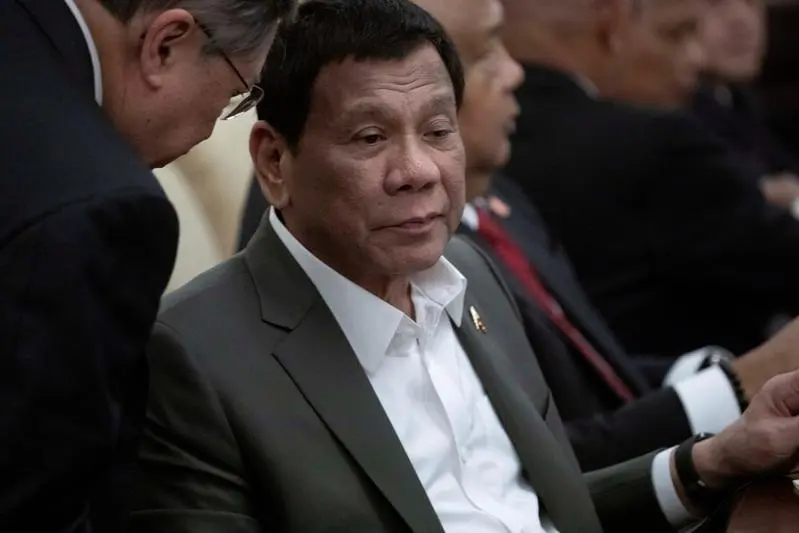PHOTO
MANILA- Philippine President Rodrigo Duterte said on Monday the battle against narcotics is far from over, more than five years after he began a brutal war on drugs that has killed thousands and prompted an accusation of possible crimes against humanity.
Duterte, in his last State of the Nation address, defended the campaign, saying it had brought down crime and improved peace and order.
"We still have long way in our fight against the proliferation of drugs," Duterte said in his nearly three-hour address, which many had expected would focus on the COVID-19 pandemic.
Duterte, 76, is not eligible for re-election, but has hinted he may run for vice-president, which critics see as a possible backdoor to a return to power.
Before his address, hundreds of activists took the streets of Manila despite the threat of the more contagious Delta variant of the coronavirus, carrying banners criticising Duterte's rights record and his handling of the COVID-19 crisis.
Last month, the prosecutor of the International Criminal Court (ICC) sought the go-ahead to launch a formal investigation into the drugs war killings, saying crimes against humanity could have been committed.
Duterte, who has dared the ICC to put him on trial, taunted the court again, saying he has never denied that he will kill people out to destroy the country.
"I have never denied, and the ICC can record it: those who destroy my country, I will kill you. And those who destroy the young people of our country, I will kill you. I will really finish you, because I love my country."
Human rights groups accuse Duterte of inciting deadly violence and say police have murdered unarmed drug suspects and staged crime scenes on a massive scale. Police deny this and Duterte insists police are under orders to kill only in self-defence.
"Duterte has nothing to show for his promise years ago to eliminate illegal drugs — nothing to show but dead bodies killed by the police," said Carlos Conde, Philippines researcher for Human Rights Watch.
Duterte, who won the presidency in 2016 on a promise to fight corruption, crime and illegal drugs, remains highly popular despite the criticism of the killings and his pandemic response.
With more than 1.5 million coronavirus cases and more than 27,000 deaths, the Philippines has the second worst outbreak in Southeast Asia.
"We had hoped the president would present a clear roadmap to economic recovery, and how the government is building up healthcare capacity to handle any surges and future pandemics," said Rizalina Mantaring, an officer at the Management Association of the Philippines.
While saying the country could no longer afford more lockdowns, Duterte said he could not completely rule out stricter curbs if the spread of the Delta variant got worse.
He also called on the public to get vaccinated. The Philippines has so far fully immunised only 5.5% of its 110 million population, data shows.
(Additional reporting by Enrico dela Cruz; Editing by Nick Macfie) ((enrico.delacruz@tr.com))





















